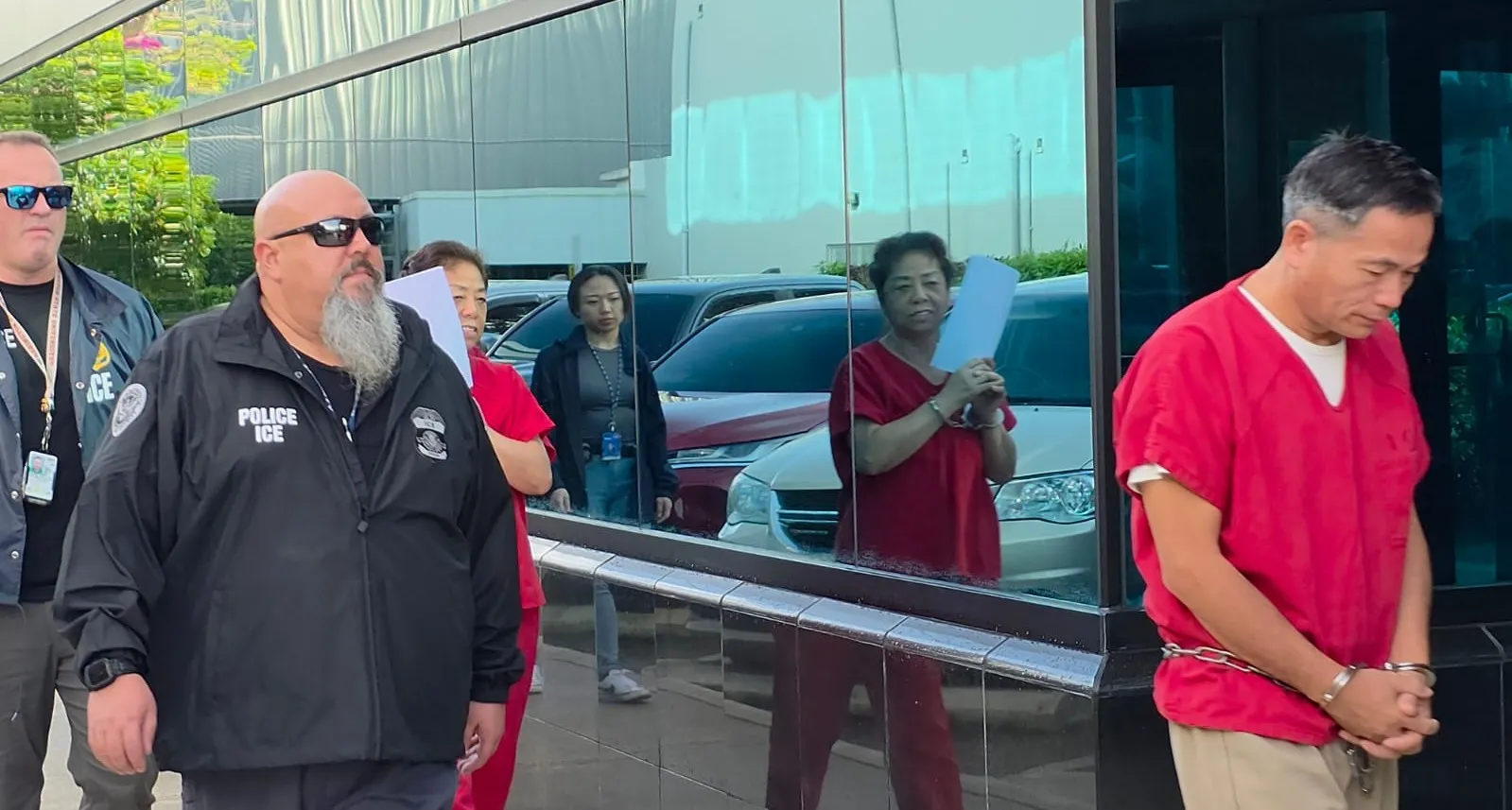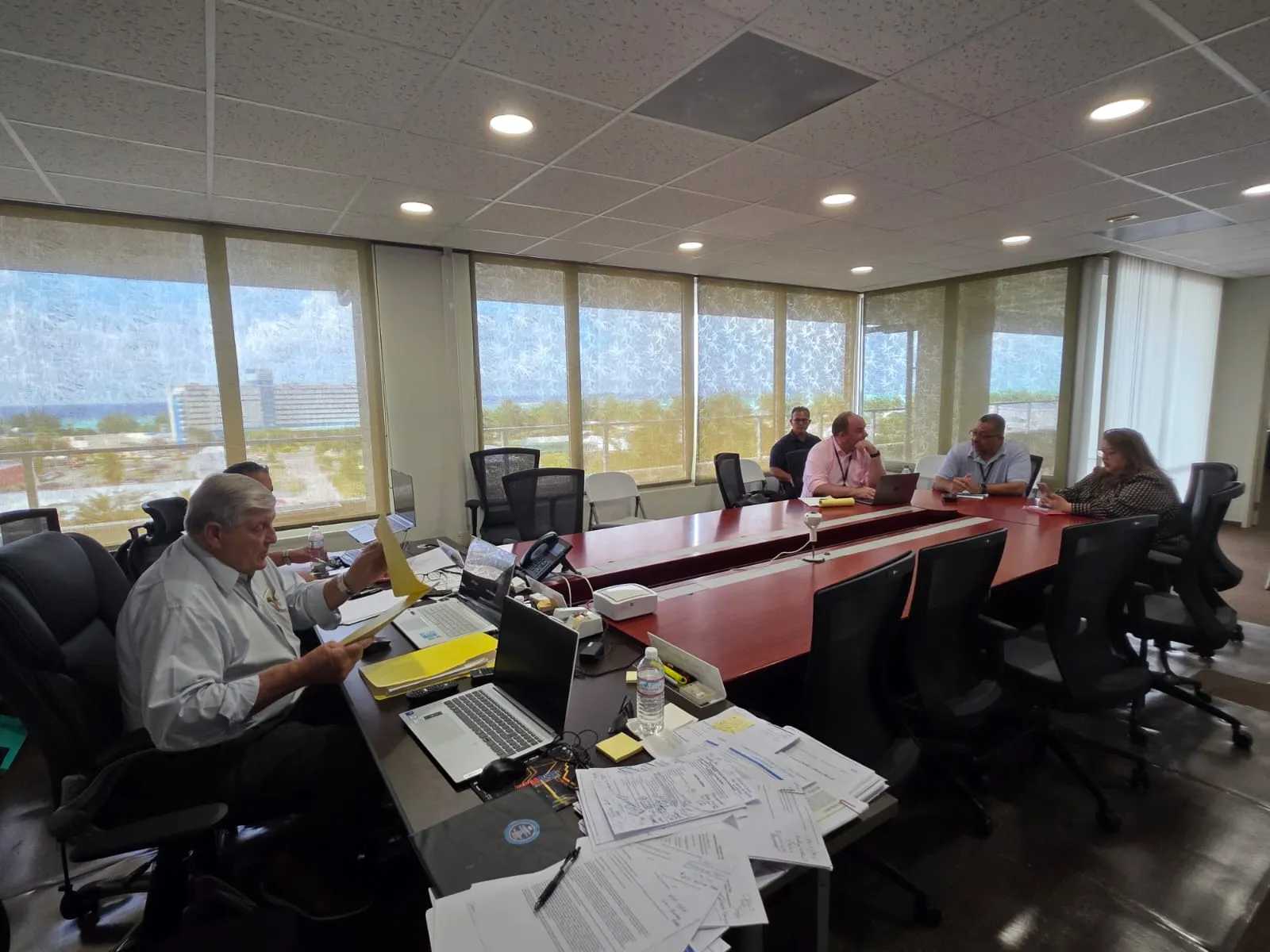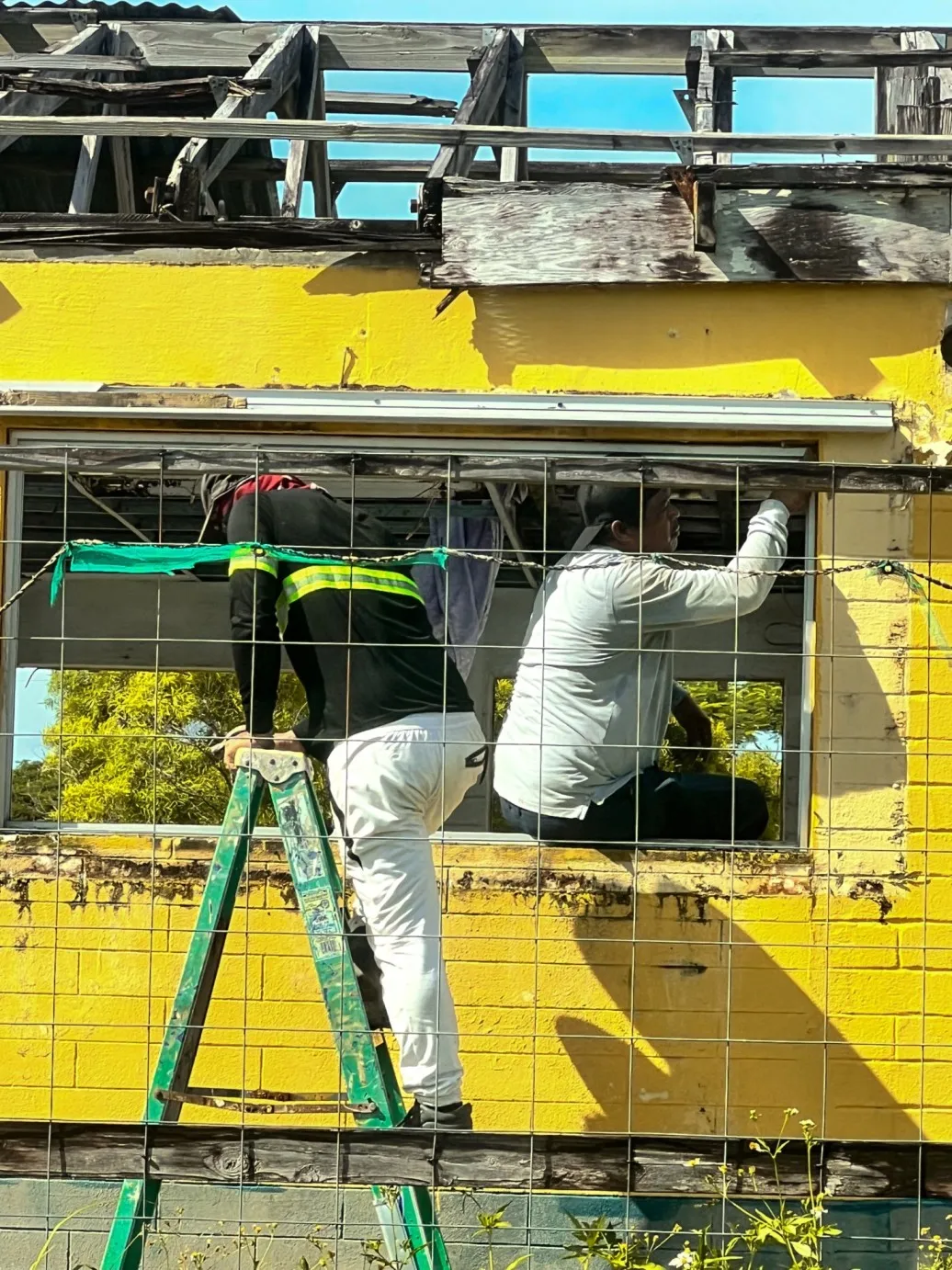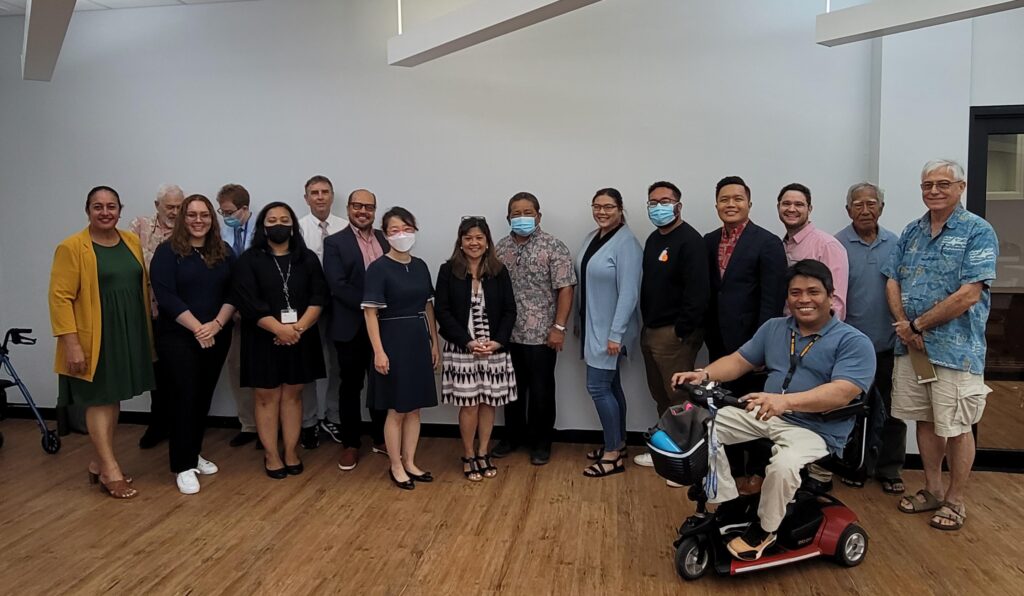AS defined by Article 12 of the CNMI Constitution, is “Northern Marianas descent” a racial construct or a political category? That is a question that has yet to be answered definitively, according to Professor Rose Cuison-Villazor of the Rutgers Law School.
She delivered a lecture titled “Critical Race Theory, Pacific Islands, and Cultural Rights” on June 28 in the Guma’ Hustisia Assembly Hall.
She discussed the history and origins of critical race theory or CRT and about how it applies to laws such as the CNMI’s Article 12, which restricts ownership of land to indigenous people.
She said CRT is part of a movement that wants to see how laws, regulations and policies can promote the interest of only one population at the expense of others, Cuison-Villazor told her audience which consisted of judicial officials, attorneys, pre-law students, and other community members.
“This is now an opportunity to revisit Article 12, and how we as a community talk about what it means…and at the same time to recognize that there are other people who have been excluded from owning property and what impact that may have on them, and the future of CNMI,” Cuison-Villazor said.
“For non-indigenous people who cannot own property, it feels as if it’s race discrimination — you cannot own land if you are non-NMD. On the other hand, NMD individuals will argue that this is supposed to protect them because of land scarcity. Importantly, the Commonwealth might not be able to become a Commonwealth because it is part of the negotiations [with the U.S.] to protect [indigenous] land rights, and from that argument one can see it’s a political one,” she added.
“It [also] means talking about, not about race, but ethnicity, colonization, self-determination, citizenship, immigration, and…a whole list of factors that are wrapped up in who we are as people of the Mariana Islands,” she said.
As for CRT, Cuison-Villazor said, it is about understanding laws and policies that have promoted and perpetuated “the subordination of people of color.”
“CRT is about expanding our analysis of how laws were passed at the outset in order to undermine the rights of…African Americans, indigenous Native Americans, and other people of color,” she added.
CRT is also about understanding racism and how to fix it, she said.
“There might be differences in how to address…racism — that’s true, and that’s not easy, otherwise we could have figured that out already. But the first thing is to recognize that law itself is not unbiased, there are no neutral principles in law,” she added.
Talking about race is not easy, Cuison-Villasor said, “but if we are going to get past racism, we have to talk about it.”
“The purpose of CRT is to challenge the status quo, and examine what can be done, what is the remedy, in any kind of ongoing subordination of people of color.”
According to Cuison-Villasor, the teaching of CRT has been banned in 13 states: Arizona, Florida, Georgia, Idaho, Iowa, Kentucky, New Hampshire, North Dakota, Oklahoma, South Dakota, South Carolina, Tennessee and Texas.
“Some of these places also banned talking about CRT in the provision of training in state and local agencies. Consequences of violating [the ban] may include the loss of funding to the schools, also some form of discipline to state employees who violate the law,” Cuison-Villazor said.
Critics of CRT, for their part, said it “vilifies white people [and] tries to foment resentment, envy, and a victimhood complex among the oppressed class it claims to champion.”
CRT, its critics said, is racist, divisive and “a neo-Marxist movement [that] rejects equal opportunity, merit and objectivity.”
Other lectures
Cuison-Villazor’s presentation is part of the Northern Marianas Judiciary Historical Society’s Law in the Community Lecture Series. She and Associate Professor Eun Hee Han of Georgetown Law School are the presenters.
Three other lectures have been scheduled:
• Thursday, June 30, 6 p.m., American Memorial Park Auditorium. Han will speak about “Critical Race Stories” based on a “groundbreaking article by scholar Mari J. Matsuda that analyzes discrimination against people because of their accents.”
• Tuesday, July 5, 6 p.m., American Memorial Park Auditorium. Cuison-Villazor will present a lecture titled “The Insular Cases and Citizenship.” The Insular Cases are U.S. Supreme Court decisions from over 100 years ago on the status of U.S. territories. The lecture will discuss those cases and more recent ones involving American Samoa in which the Insular Cases played a major role.
• Thursday, July 7, 12 p.m., Guma’ Hustisia Assembly Hall in Susupe. Han will give a lecture titled “Cross-Cultural Competency and Law.” This pertains to a new standard of the American Bar Association that requires law schools to educate their students on cross-cultural competency, bias and racism.
The lectures are free and will be livestreamed on the CNMI judiciary’s Facebook page. Members of the CNMI Bar Association can receive one CLE credit per lecture attended. The professors, who were both raised in the CNMI, will also be teaching introductory law classes as part of the Judiciary Summer Pre-Law Program.
The Law in the Community Lecture Series is made possible in part by a major grant from the Northern Marianas Humanities Council and the National Endowment for the Humanities.
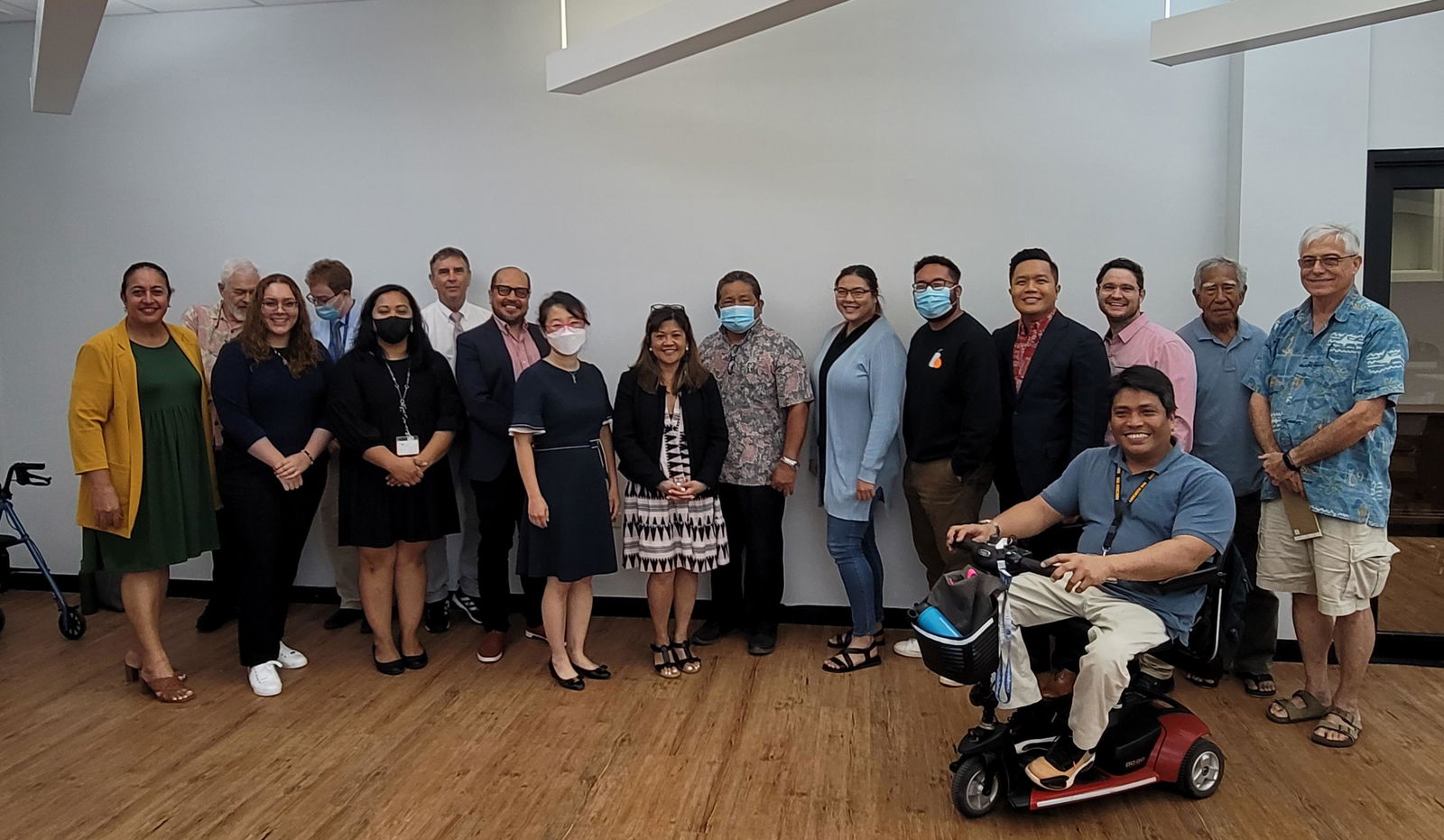
Law Professor Rose Cuison-Villazor, center, poses for a photo with community members, attorneys, pre-law students and judicial officials at the Guma Hustisia.
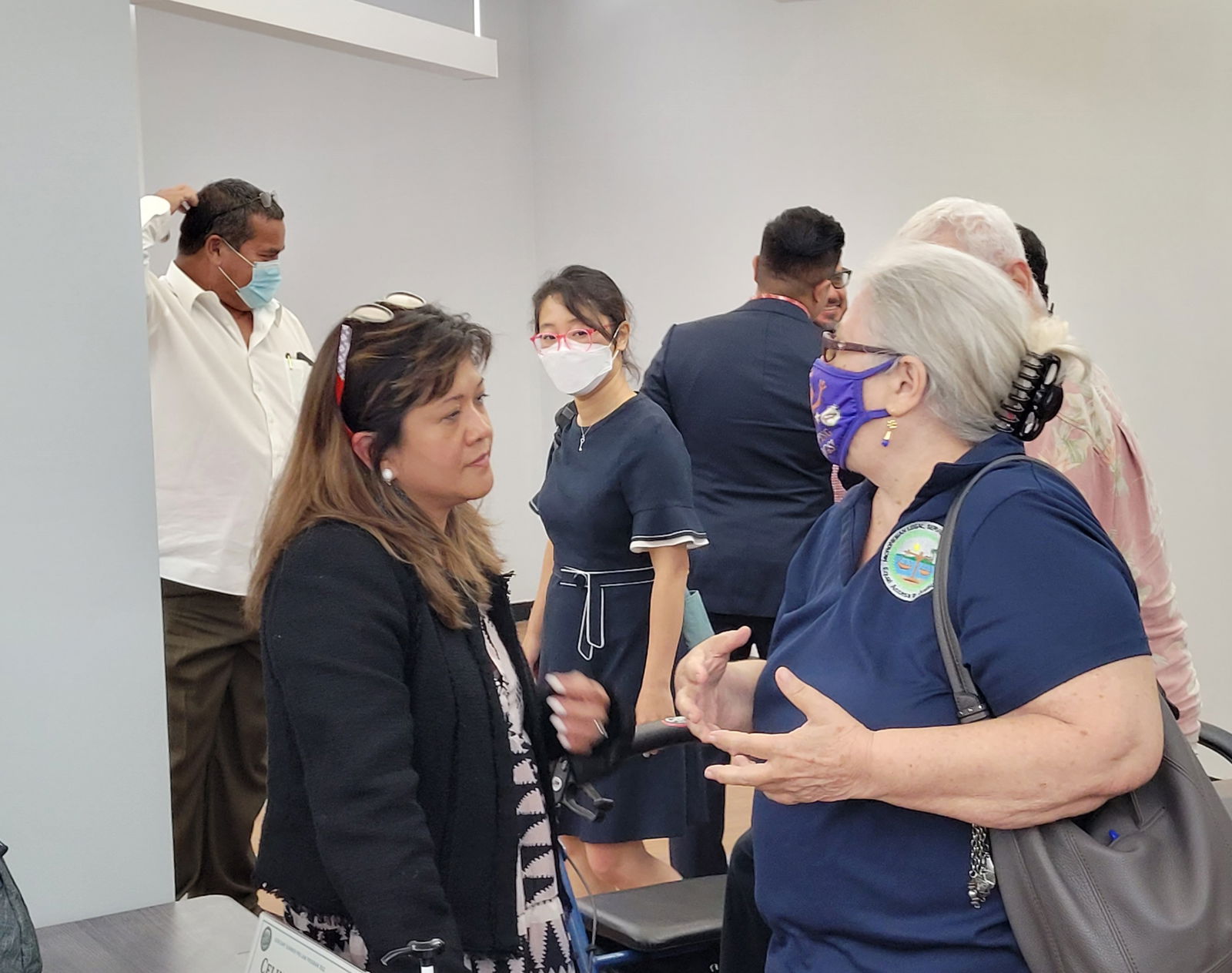
Law Professor Rose Cuison-Villazor listens to local attorney Jane Mack in the Guma Hustisia Assembly Hall.



